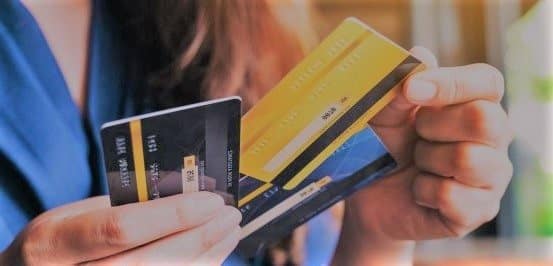Top Facts For Selecting Credit Card Apps
Wiki Article
How Can I Find Out The Status Of My Card As Stolen In The United States?
Follow these steps: 1. Contact the credit card company that issued your card.
Contact customer support at the number printed on the backside your credit card.
Inform the representative of your desire to verify whether or not the credit card has been reported stolen or lost.
Get your personal information ready as well as the details of your credit card to be checked.
Check Your Online Account-
Login to your account online for credit cards or for banking.
You can look for alerts, notifications and messages regarding the status your credit card.
Examine recent transactions to determine any suspicious or unauthorized activities that are suspicious or illegal.
Keep an eye on Your Credit Report-
Obtain a free copy of your credit report from each of the three major credit bureaus (Equifax, Experian, TransUnion) through AnnualCreditReport.com.
Check for unusual credit accounts and inquiries on your credit report which could suggest fraud.
Security Freezes and Fraud Alerts
Consider placing an alert for fraud or a security freeze on your credit report if you suspect identity theft or fraud.
A fraud alerts lenders to verify you before giving credit. The security freeze however will limit your access to your credit report.
Watch out for any suspicious activities and be sure to report it.
Monitor your credit-card statements regularly, and notify your card company of any transactions that appear suspicious or not authorized.
Inform any suspicious instances of identity theft or fraud to the Federal Trade Commission. File police reports within your local neighborhood.
By contacting your bank, looking up the history of your account online, keeping track of the state of your credit score, and remaining alert for any warning signs of fraudulent transactions, you are able to avoid fraudulent use of your credit card.
![]()
What Does It Mean For My Credit Card To Be Listed On The Blacklist?
The card will be limited to certain transactions and usage until the issue is addressed by the cardholder, or the card issuer. Blacklisting may occur due to a variety of reasons.
Card Blocked for Security Reasons - If you suspect fraud, your card could be blocked if it detects unusual or suspicious transactions.
Security Issues. If evidence suggests possible compromise, like unauthorized access, or data breaches that affects the card's details or unusual spending patterns then the card is identified as a security risk.
Identification Verification Problems: If a cardholder is unable to verify their identity, it is possible to temporarily stop the card. This can happen in the event of additional verification requirements.
Card stolen or lost If you report the lost or stolen card the card issuer will stop it to prevent unauthorized access until a replacement card has been issued.
Suspicious activity indicators- Any behaviour, or even activity associated with the card, that could raise suspicions (such as several declined transactions or geographical anomalies), or any unusual spending pattern could trigger a temporary suspension.
When a credit or debit card is listed, it may restrict the cardholder’s access to the cards or their ability to perform transactions until the company that issued the credit card confirms its legitimacy or satisfies any concerns about possible fraud or security risk. Cardholders should immediately contact their issuer to let them know about the problem, verify the transactions, and resolve any security issues.

Who Are The People Who Can Run Credit Card Number Through An Blacklist?
The authorized professionals of financial institutions, law agencies, or cybersecurity companies validate the credit card number against a blacklist or verify fraudulent activities that involves credit cards. These professionals are Fraud Analysts- Individuals trained by banks to detect and investigate suspicious activities that involve credit cards. They use specially designed software and tools that identify patterns or irregularities and also potentially compromised card numbers.
Cybersecurity experts are professionals who specialize in cybersecurity. They are certified to monitor and identify dangers, such as credit card compromises. They focus on preventing breaches of information, looking at the data for indicators and then implementing security measures.
Specialized groups within law enforcement agencies or individuals who conduct investigations into financial crimes, including fraud with credit cards. They are equipped with databases and resources that they can utilize to monitor and analyze fraudulent activity.
Compliance Officers: Experts who ensure that financial institutions comply with the laws and regulations governing financial transactions. They can oversee processes for monitoring suspicious activity and identifying it related to credit cards.
Access to databases with credit card blacklists is strictly controlled and requires legal authorization. For example, being a part of an official investigation into financial crimes or being granted specific permissions by authorized entities are examples.
The teams and professionals use special programs, protocols, and legal processes to compare credit card numbers with blacklists. They must also follow strict privacy regulations and security standards. If you are concerned about the security of your credit card details It is essential to speak with authorized professionals or institutions. Unauthorized attempts of accessing or using blacklists for credit cards can have legal consequences. Check out the top savastan0 for more advice.
